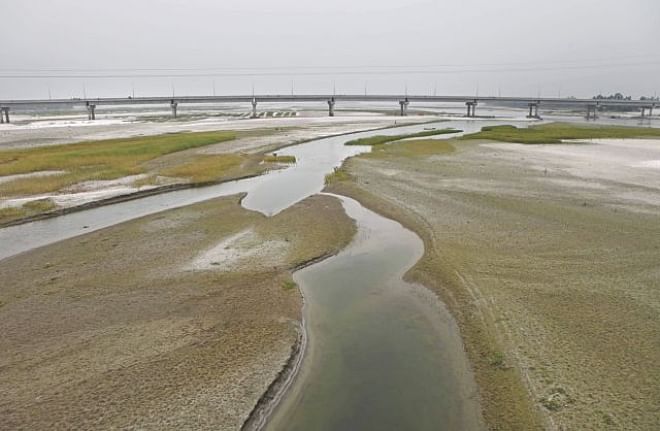Indian elections and India-Bangladesh relations

India is holding parliamentary election which is most likely going to change the present regime at the centre. Even if Congress manages to spring a surprise and comes back to power, its two prominent leaders Prime Minister Manmohan Singh and Finance Minister P. Chidambaram would not be in new government. Thus, a new government at the centre in India is a certainty, only the party that comes to power could be different. This likely change has also caused some unease among a section in Bangladesh who apprehend that India-Bangladesh relations would be adversely affected. However, this may not be the case.
On the contrary, it is possible that there could be some positive developments. India has been going through a policy paralysis for the last several years. This affected decision-making in economic and foreign policy arenas. Economic reforms were not taking place, which resulted in slowing down of economy. This has turned out to be a major reason behind the unhappiness with the present government. The situation left a lot to be desired, even in the foreign policy arena.
The Indian government suffered a major embarrassment when West Bengal Chief Minister Mamata Banerjee refused to accompany Prime Minister Manmohan Singh during his Dhaka visit in September 2011. This happened because the government at the centre was not stable. It gave a lot of space to regional players who did not let the centre carry out its responsibility of foreign policy making with full freedom. However, the centre could also be blamed for not taking them into confidence before arriving at a deal.
This situation could change if a stable government comes to power in New Delhi. Though it may be difficult for any government in the centre to ignore the point of view of West Bengal represented by the government of the day in the state, a properly functioning central government would be in a better position to negotiate a deal and finally implement that.
This is possibly the reason why Bangladeshi diplomats posted in India too feel confident about the future of bilateral relationship. This was manifested in the recent statement of Mahbub Hassan Saleh, Deputy High Commissioner of Bangladesh, who said that there would not be any problem even if Modi, prime ministerial candidate of the National Democratic Alliance (NDA), comes to power. The High Commissioner of Bangladesh, His Excellency Tariq Karim, already enjoys good rapport with Modi as he has met him in Gujarat. Former foreign minister Dipu Moni also met top opposition leaders when she was in India last time. She has already discussed important issues in bilateral relations with the opposition. This would now come handy in case opposition NDA comes to power. Modi has himself said that the neighbouring countries have nothing to worry if he forms the government. In fact, Modi, being concerned with increasing Chinese presence in South Asia, could take some positive measures to strengthen the bilateral relationship.
Out of the two big ticket issues the new government would find it easier to implement the Land Boundary Agreement (LBA). This agreement is nearly ready and has already been placed in the upper house of the parliament with the objective that it does not expire with the tenure of the parliament. It shows that the parliamentarians are sincere about it. The new government in New Delhi might at best like to tweak the deal a little and go for it. This tweaking could also be just to pacify the various opponents of the deal.
There are many positive things happening in India-Bangladesh relations even while India is holding parliamentary elections. There were reports that India had offered Bangladesh another one billion dollar credit. Bangladesh is reportedly considering allowing India to take its power transmission line through Bangladesh so that hydropower generated in North East could be transferred to consumers in North Western India. Bangladesh is also likely to benefit by getting some hydropower. Moreover, it is also possible that Bangladesh might get some hydropower produced in Bhutan. Thus, the win-win cooperation seems to be going on unhindered.
Indian corporates are willing to invest in Bangladesh. Hero motors, the largest manufacturer of motorcycles in India, has decided to invest $40 million in Bangladesh. This would create 200,000 jobs. Besides, it would also help address trade imbalance. The confidence of Indian corporates to invest in Bangladesh indicates that they believe that relationship is only likely to improve further.
India and Bangladesh may not have been able to solve two big-ticket issues of LBA and Teesta water sharing but they have done well by not getting bogged down by them. A general environment of friendliness has resulted in other benefits which are no less important. In fact, the goodwill and mutual trust generated from them could actually lead to solution of Teesta water sharing and the LBA. This would not have been possible in an environment of hostility.
The writer is Associate Fellow, Institute for Defense Studies & Analyses (India).

 For all latest news, follow The Daily Star's Google News channel.
For all latest news, follow The Daily Star's Google News channel. 




Comments